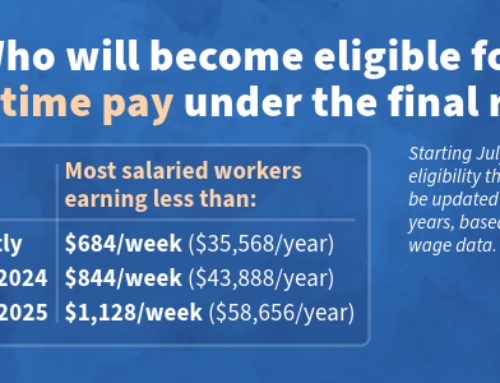As part of an appropriations measure, Congress passed a flurry of new tax legislation at the end of 2019. These new rules may have an impact on 2019 tax returns to be filed in 2020.
Notably, the “Taxpayer Certainty and Disaster Tax Relief Act of 2019” extends through 2020 several tax breaks for individuals that had officially expired or were about to expire. A few items of note affecting individual returns include:
- Extension of the deduction for qualified tuition and related expenses
The tuition deduction is capped at $4,000 subject to AGI limitations. This deduction had previously expired, and the Disaster Act retroactively extends this deduction through 2020.
- Reduction in medical expense deduction floor
Taxpayers were allowed an itemized deduction for un-reimbursed medical expenses to the extent that such expenses exceeded 7.5% of AGI. The 2017 Tax Act previously reduced this threshold from 10% to 7.5% for 2017 and 2018 only. The Disaster Act extends the reduced threshold of 7.5% through 2020.
- Exclusion from gross income of discharge of qualified principal residence indebtedness
Under pre-Disaster Act law, discharge of indebtedness income from qualified principal residence debt, up to $2 million, was excluded from gross income through 2017. The Disaster Act retroactively extends this exclusion to discharges of indebtedness through 2020.
- Deduction of mortgage insurance premiums
The Disaster Act extends the treatment of mortgage insurance premiums as qualified residence interest through 2020. This allows for the deduction of mortgage insurance premiums subject to a phase-out based on the taxpayer’s AGI.
The extenders on the businesses side include the family and medical leave credit and the Work Opportunity Tax Credit (WOTC) for hiring workers from disadvantaged groups, as well as various industry-specific tax incentives. Finally, the new law repeals three taxes authorized by the Affordable Care Act (ACA).
The “Setting Every Community Up for Retirement Enhancement” (SECURE) Act, the biggest retirement law in the last decade, generally takes effect on January 1, 2020. Among other significant changes, it effectively eliminates “stretch IRAs” allowing non-spousal beneficiaries to postpone required minimum distributions (RMDs), increases the age for starting RMDs from 70½ to 72, allows individuals over age 70½ to contribute to traditional IRAs, provides enhanced credits for businesses that start up a qualified retirement plan and enhances certain employee protections. The SECURE Act also reverses a scheduled change in the way the “kiddie tax” is calculated.
If you have any questions about how the new legislation affects your 2019 return or other tax aspects, please do not hesitate to contact our office. We would be glad to schedule a meeting to discuss your personal situation.







Leave A Comment
You must be logged in to post a comment.